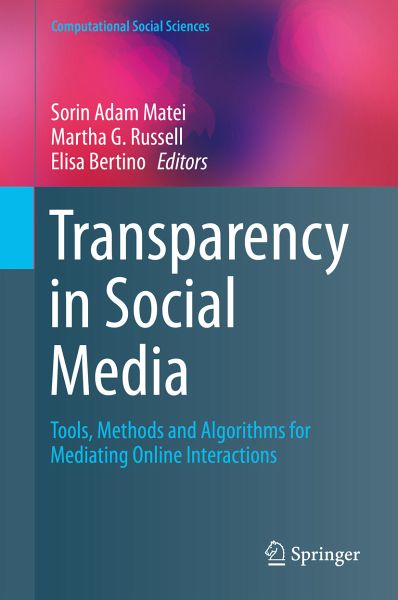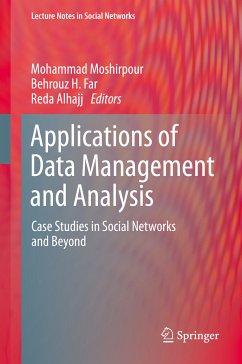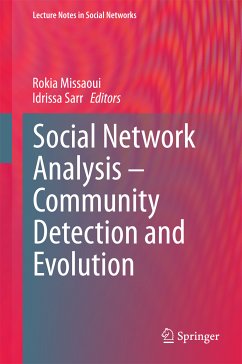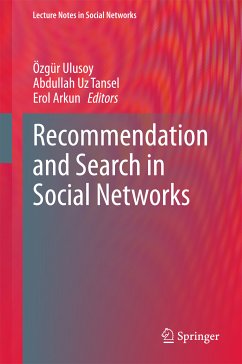
Transparency in Social Media (eBook, PDF)
Tools, Methods and Algorithms for Mediating Online Interactions
Redaktion: Matei, Sorin Adam; Bertino, Elisa; Russell, Martha G.
Versandkostenfrei!
Sofort per Download lieferbar
72,95 €
inkl. MwSt.
Weitere Ausgaben:

PAYBACK Punkte
36 °P sammeln!
The volume presents, in a synergistic manner, significant theoretical and practical contributions in the area of social media reputation and authorship measurement, visualization, and modeling. The book justifies and proposes contributions to a future agenda for understanding the requirements for making social media authorship more transparent. Building on work presented in a previous volume of this series, Roles, Trust, and Reputation in Social Media Knowledge Markets, this book discusses new tools, applications, services, and algorithms that are needed for authoring content in a real-time pu...
The volume presents, in a synergistic manner, significant theoretical and practical contributions in the area of social media reputation and authorship measurement, visualization, and modeling. The book justifies and proposes contributions to a future agenda for understanding the requirements for making social media authorship more transparent. Building on work presented in a previous volume of this series, Roles, Trust, and Reputation in Social Media Knowledge Markets, this book discusses new tools, applications, services, and algorithms that are needed for authoring content in a real-time publishing world. These insights may help people who interact and create content through social media better assess their potential for knowledge creation. They may also assist in analyzing audience attitudes, perceptions, and behavior in informal social media or in formal organizational structures. In addition, the volume includes several chapters that analyze the higher order ethical, critical thinking, and philosophical principles that may be used to ground social media authorship. Together, the perspectives presented in this volume help us understand how social media content is created and how its impact can be evaluated.
The chapters demonstrate thought leadership through new ways of constructing social media experiences and making traces of social interaction visible. Transparency in Social Media aims to help researchers and practitioners design services, tools, or methods of analysis that encourage a more transparent process of interaction and communication on social media. Knowing who has added what content and with what authority to a specific online social media project can help the user community better understand, evaluate and make decisions and, ultimately, act on the basis of such information.
The chapters demonstrate thought leadership through new ways of constructing social media experiences and making traces of social interaction visible. Transparency in Social Media aims to help researchers and practitioners design services, tools, or methods of analysis that encourage a more transparent process of interaction and communication on social media. Knowing who has added what content and with what authority to a specific online social media project can help the user community better understand, evaluate and make decisions and, ultimately, act on the basis of such information.
Dieser Download kann aus rechtlichen Gründen nur mit Rechnungsadresse in A, B, BG, CY, CZ, D, DK, EW, E, FIN, F, GR, HR, H, IRL, I, LT, L, LR, M, NL, PL, P, R, S, SLO, SK ausgeliefert werden.













